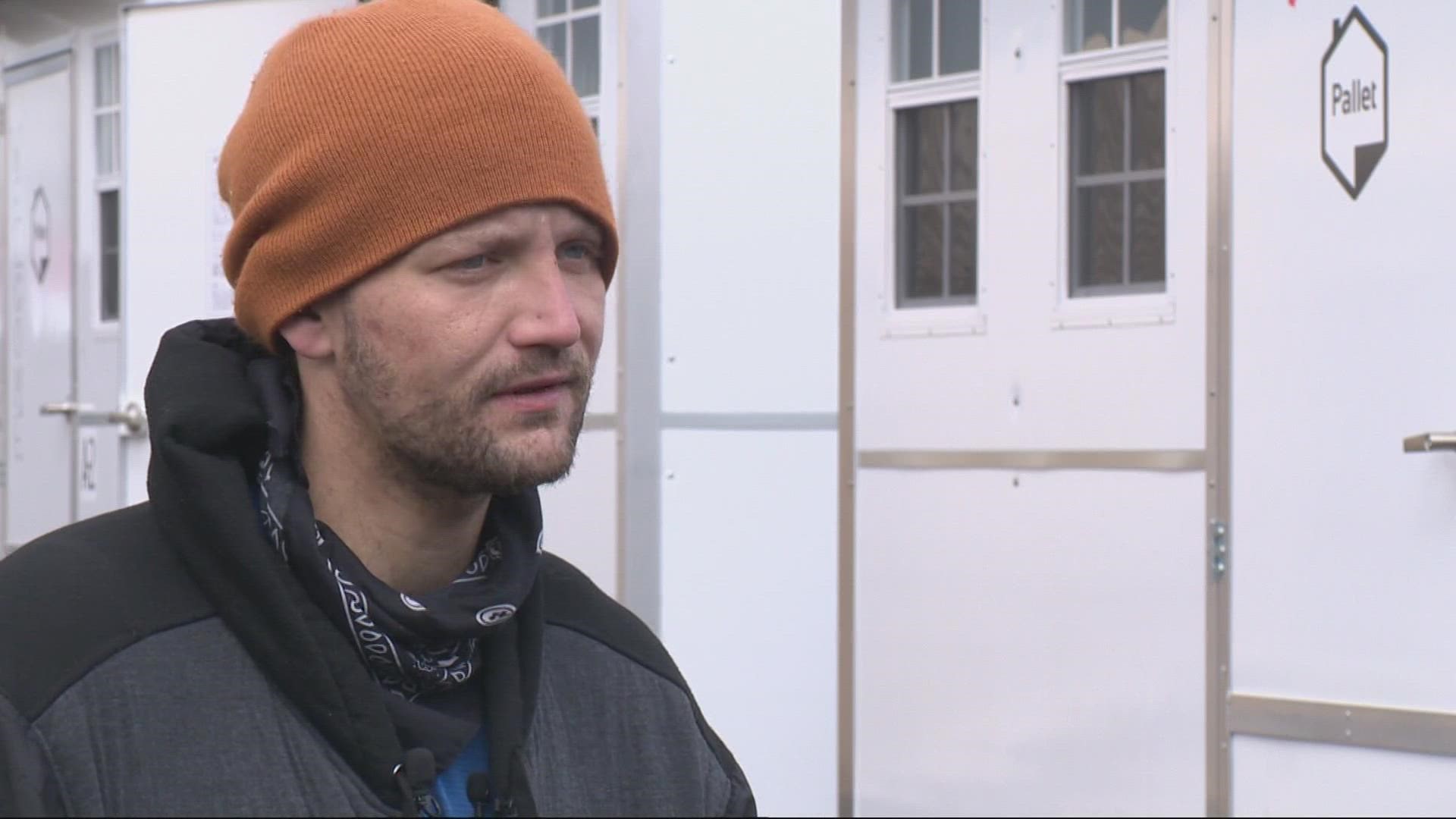VANCOUVER, Wash. — After a short delay caused by the unexpected spring snow storm earlier this month, the City of Vancouver has now opened its second Safe Stay Community. The transitional housing site provides basic shelters for homeless people who would otherwise be living on the street.
"Hope Village" rests on a city-owned property along East Fourth Plain Boulevard, joining another site on Northeast 51st Circle in east Vancouver that opened in December.
"Since opening, this community has successfully provided residents with referrals for permanent housing, job placement support, and access to critical health and treatment services necessary to exit homelessness," city officials said of the original site.
Overseen by the nonprofit Living Hope Church, the Fourth Plain site includes 20 temporary modular shelters that could house as many as 40 residents working to transition out of homelessness.
The site also attempts to provide lower barriers for entry, a frequent disconnect between shelters and the community they serve. Hope Village does not allow drug use on the property, but residents don't need to be clean and sober to qualify for entry. Residents are also allowed to keep their pets.
Charles Stuart works with Living Hope Church, and he'll be living on-site to help manage it. He's also very familiar with the challenges that residents have faced and will continue to struggle with.
"I've been homeless off and on for a little over 20 years," Stuart said. "I will say mainly due to drug addiction. I've got about two and a half years sober, clean and sober now. I found Living Hope church. That's been big, a really big part of my life."
Eddie Gresko will be one of the first residents at the village. While having a dry place to sleep is a perk, he's most looking forward to having some privacy and security.
"It's more worrying about my stuff than where I sleep," Gresko said. "It's easy to find a place to sleep as long as it's out of the wind and rain, that's easy. It's keeping all your things — not getting stolen, losing them, people walking off with your stuff — that's more about it."
It isn't just pragmatism that brought Gresko to Hope Village — he found some room for optimism.
"I'm kind of tired of being homeless, that's kind of what it was," he said. "And at least this will help me out until hopefully I get into housing ... which, fingers crossed on that."
Vancouver has an estimated 500-600 people currently living outside. It wasn't long ago that the city had few, if any people on the streets, according to Mayor Anne McEnerny-Ogle. The journey to addressing the issue has been long, and required a city government willing to become familiar with what life is like for the homeless.
"We've had councilors take care of food and clothing and clean up at shelters," McEnerny-Ogle told KGW. "You know? Don our gloves, tie our hair up and go out and clean. And so it meant a unified council saying 'what's going on here in our community?' Let's actually get our hands dirty and figure out what this all about and figure out how we can solve the problem."
City officials first attempted to address the problem by opening a navigation center to connect people with services, but the center closed after backlash from neighbors.
The Safe Stay Community concept emerged as part of a multi-pronged homelessness response plan developed by Vancouver, which the city has been working to follow dutifully since it was launched.
Portland has been pursuing a similar plan to open shelter communities, dubbed Safe Rest Villages, but the project has been bogged down by some combination of neighborhood pushback and difficulties employing COVID-19 relief funds. Of the six sites identified by city officials, none have yet opened.
McEnerny-Ogle said that there's a big difference between Vancouver's efforts and what Portland is endeavoring to do — one of scale. The smaller city's Homeless Response Coordinator Jamie Spinelli and Neighborhood Liaison Tyler Clary have been coaching local organizations on how to proceed.
"Tyler and Jamie worked with a couple nonprofits to help them understand and mentor them so they could take on the responsibility, but they're only responsible for 20 to 40 people," she said. "Portland — oh my goodness. I know you're looking at some big ... camp opportunities. We don't have the nonprofit people who could do that."
A third Safe Stay Community in Vancouver is expected to open by summer.

